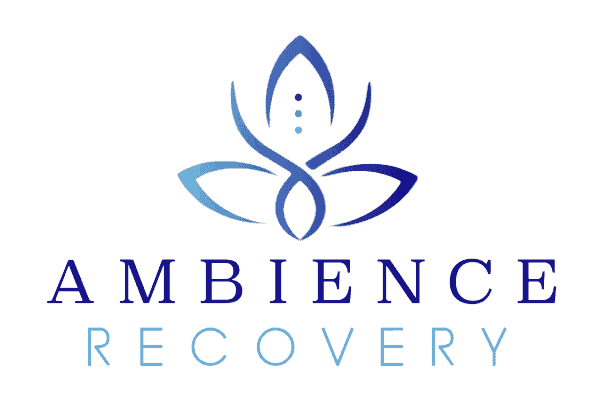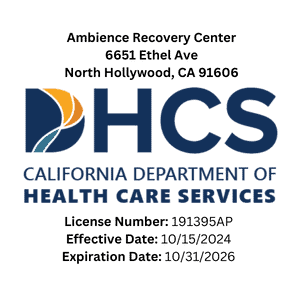Key Takeaways
- Crystal meth is a highly addictive stimulant that rewires the brain’s reward system.
- Meth floods the brain with dopamine, causing strong cravings and dependence.
- Withdrawal symptoms can be intense and long-lasting, making quitting difficult.
- Long-term meth use leads to physical, mental, and emotional health problems.
- Professional treatment helps individuals safely detox, heal, and recover long-term.
Introduction
For many people struggling with meth addiction, the question is simple but heartbreaking:
“Why is it so hard to quit?”
The answer isn’t about weakness or lack of willpower. Crystal meth is a powerful, highly addictive drug that affects both the brain and body in deep, long-lasting ways. It creates strong cravings, painful withdrawal symptoms, and emotional struggles that make it tough to stay clean without help.
In this article, we’ll explain why quitting meth is so challenging, how it changes the brain, and why professional treatment makes a real difference in the recovery journey.
How Crystal Meth Affects the Brain
Methamphetamine, often called crystal meth, is a strong stimulant. It speeds up the body’s systems and triggers a massive release of dopamine, the brain chemical responsible for pleasure, reward, and motivation.
The first few times someone uses meth, they might feel a powerful rush of energy and euphoria. But that feeling comes at a cost. Over time, meth use damages the brain’s dopamine system, making it harder for the person to feel pleasure or joy without the drug.
This change in the brain creates a strong need to keep using meth—just to feel “normal.” That’s why many users find it nearly impossible to stop without help.
Cravings and the Risk of Relapse
After meth leaves the body, cravings can hit hard. These cravings aren’t just a want—they’re a deep, physical and mental urge. The brain remembers the high and demands more.
When someone tries to quit meth, they often experience:
- Intense cravings
- Fatigue and low energy
- Depression
- Irritability or anxiety
- Trouble sleeping
This stage is sometimes called “the crash,” and it can last for days or even weeks. During this time, the person feels terrible—and they know taking meth would make them feel better, at least temporarily. This is what makes relapse so common.
Physical and Psychological Dependence
Crystal meth doesn’t just hook the brain. It also takes a toll on the body and emotions. People who use meth regularly can develop both:
Physical dependence, which includes:
- Sleep problems
- Headaches
- Muscle pain
- Increased appetite
- Drug cravings
Psychological dependence, which includes:
- Mood swings
- Memory issues
- Anxiety or panic attacks
- Depression
- Feeling emotionally numb or hopeless
These symptoms make it difficult to think clearly or stay focused on recovery. That’s why meth addiction is more than just a “bad habit”—it’s a condition that affects every part of a person’s life.
How Long-Term Meth Use Changes the Body
The longer someone uses meth, the more damage it can cause. Meth affects not just the brain, but also the heart, skin, teeth, and immune system.
Some common problems linked to long-term meth use include:
- “Meth mouth” – severe tooth decay and gum disease
- Skin sores and infections from picking or scratching
- Weight loss and malnutrition
- Heart damage and high blood pressure
- Increased risk of stroke and other health problems
The longer the body is under stress from meth, the harder it is to bounce back. That’s why early treatment is so important.
Meth Withdrawal: What It Feels Like
When someone stops using meth, their body and brain go through withdrawal. This process can be intense, especially if they’ve used for a long time.
Common withdrawal symptoms include:
- Tiredness or total exhaustion
- Deep sadness or depression
- Strong cravings
- Trouble sleeping or vivid nightmares
- Anger or mood swings
- In rare cases, suicidal thoughts
These symptoms can last from a few days to several weeks. During this time, it’s easy to feel hopeless or overwhelmed, which is why trying to quit alone often leads to relapse.
Mental Health and Trauma Make It Even Harder
Many people who use meth are also dealing with mental health conditions like anxiety, depression, PTSD, or bipolar disorder. Others have experienced trauma, grief, or abuse that hasn’t been addressed.
Sometimes, people turn to meth as a way to escape emotional pain or feel in control. But over time, meth only makes these issues worse.
This connection between addiction and mental health makes quitting harder because both issues need to be treated together. Focusing only on the drug use—without healing the emotional side—can lead to relapse and more suffering.
Why Willpower Alone Isn’t Enough
There’s a harmful myth that says, “If you really wanted to quit, you would.” But meth changes the brain in ways that make quitting nearly impossible without support.
Someone addicted to meth isn’t weak. They’re struggling with a powerful chemical dependency that affects their thoughts, choices, and emotions. It’s not a matter of trying harder—it’s a matter of getting the right kind of help.
How Treatment Helps People Overcome Meth Addiction
The good news is this: Recovery from meth addiction is possible—and it starts with asking for help.
At Ambience Recovery, we use a combination of care strategies to help people get clean, stay sober, and rebuild their lives. This often includes:
- Medical detox to help ease withdrawal symptoms safely
- Therapy (individual and group) to explore the root causes of addiction
- Mental health support for anxiety, depression, or trauma
- Life skills and coping tools to handle stress and prevent relapse
- Aftercare planning to support long-term recovery outside of treatment
Each person’s path is different, so treatment plans are customized based on individual needs, goals, and challenges.
Conclusion: Recovery Is Hard, But Possible
Crystal meth is one of the most addictive and damaging drugs out there. It hijacks the brain, hurts the body, and traps people in a painful cycle of use and relapse.
But there is hope.
You don’t have to keep fighting this battle on your own. Whether you’re just starting to consider treatment or you’ve tried to quit before, it’s never too late to start over.
Call Ambience Recovery at 866-721-7470 to speak with a caring team member. We’re here to help you take your first step toward a healthier, drug-free life—one that you truly deserve.
FAQs About Why Struggling With Meth Addiction & Quitting is So Hard
Why is methamphetamine addiction so hard to overcome?
Methamphetamine addiction is extremely addictive due to its powerful effects on the central nervous system. It significantly increases the release of neurotransmitters, particularly dopamine, which creates intense feelings of pleasure. This can lead to a cycle of drug use that is difficult to break, as users often seek to recreate these pleasurable experiences.
What are the main withdrawal symptoms associated with meth addiction treatment?
Withdrawal symptoms from methamphetamine can include fatigue, depression, increased appetite, and intense cravings for the drug. These symptoms can vary in intensity and duration, making the process of quitting meth challenging for those struggling with addiction.
What treatment options are available for meth addiction treatment?
Treatment for meth addiction typically includes a combination of behavioral therapies, counseling, and support groups. Some programs may also incorporate medications to help manage withdrawal symptoms and cravings. Professional help is crucial for effective recovery.
How do long-term effects of meth use impact recovery?
Long-term effects of meth use can include significant damage to the brain, leading to cognitive impairments and mental health issues. These effects can complicate the recovery process and make it harder for individuals to quit using meth and maintain sobriety.
Can someone quit using meth without professional help?
While it is possible for some individuals to quit using meth without professional help, the risks associated with withdrawal and relapse are high. Seeking professional assistance can greatly enhance the chances of successful recovery from methamphetamine addiction.
What role do co-occurring mental health disorders play in meth addiction?
Co-occurring mental health disorders, such as depression or anxiety, are often associated with methamphetamine use. These issues can exacerbate the addiction and complicate treatment, making it vital to address both the substance use disorder and any underlying mental health problems in a comprehensive treatment program.
How does the national institute on drug abuse view methamphetamine addiction?
The National Institute on Drug Abuse recognizes methamphetamine addiction as a serious public health concern. They provide resources and information on the dangers of meth use, the effectiveness of various treatment options, and the importance of addressing the associated long-term effects of meth use.
What are the risks of prolonged meth use?
Prolonged meth use can lead to severe health complications, including cardiovascular problems, mental health disorders, and significant cognitive decline. These risks highlight the importance of early intervention and effective meth addiction treatment to prevent further health deterioration.
How can family and friends support someone struggling with methamphetamine addiction?
Family and friends can support someone struggling with methamphetamine addiction by encouraging them to seek professional help, providing emotional support, and participating in treatment discussions. Understanding the challenges of addiction can help loved ones offer more effective assistance during the recovery journey.
Resources
https://nida.nih.gov/research-topics/methamphetamine
https://www.cdc.gov/mmwr/volumes/69/wr/mm6912a1.htm
https://www.nyc.gov/site/doh/health/health-topics/methamphetamines.page
Katie is a Licensed Clinical Social Worker who has worked as a primary therapist, supervisor, and now clinical director for SUD/MH treatment centers for the past 12 years. Katie is trained in Brainspotting, EMDR, Internal Family Systems and Dialectical Behavior Therapy and is passionate about treating substance use disorders, trauma and grief.






